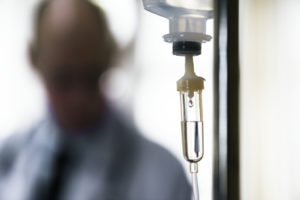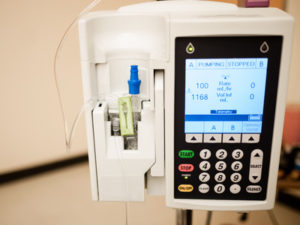Maybe you’ve heard the buzz.
Ketamine for depression is in the headlines, the journals, and the chatter at Starbucks. If you or someone you love wrestles with the exhausting symptoms of depression, you’ve likely heard about it.
Or maybe you haven’t.
Either way, it’s the biggest news in psychiatry these days, and seems to be high on the list for some entrepreneurs looking to make a profit. The result is clinics that have popped up all over the country — almost overnight– run by businessmen, anesthesiologists, psychiatrists, ER docs, ICU docs, and nurses.
If you’re considering ketamine for depression, maybe you’ve looked for someone in your area who offers ketamine treatment?
There may be more places to get treatment than you think. Or there may be fewer than you wish. Either way, your health, your brain, and your mind ought to be treated with care, caution, and best practices, for best outcomes as well as safety.
Let’s talk about the ins and outs of these clinics and practices, so that you can be your own advocate. Scrutinize … and screen a ketamine clinic before you agree to treatment.
Psychiatric Treatment as a Business..?
Healthcare should not incorporate high pressure sales techniques. But there has been an explosion of ketamine clinics … pop-up clinics … and non-MD CEO-types setting up ketamine clinic franchises and making a nice profit from them. They work with anesthesiologists, emergency department physicians, family medicine docs, and other non-psychiatrists to run these clinics, and pocket a lot of the money.
They operate as call centers or use centralized calling services to funnel and schedule appointments, collect your money … and bend over backwards to get you in the door. Some of the call centers or clinics are pretty aggressive in encouraging you to schedule followups for maintenance dosing or buy clinic “memberships” so that you can get maintenance ketamine on a regular schedule. Even though the whole question of maintenance hasn’t been well-studied.
This is a business model. Not a wellness model.
And in our experience, most patients don’t need maintenance ketamine on a regular schedule. (We need much more research to determine that.)
One Size Never Fits All in Psychiatric Treatment
Just like the degree of response, the need for maintenance doses of ketamine is purely individual, and should be handled on a case by case basis. In short, ketamine treatment for mood and anxiety disorders should be given by psychiatrists who can evaluate each patient for their response to treatment, its effectiveness, and durability.
So … if ketamine infusions are $500-800 each, you can see the business model in that — and the profits — in making sure everyone comes in once every month or two. Whether they need it or not…?
But psychiatric care, like all health care, demands personalized care. Expect to be treated with what you need, not what someone’s wanting to sell.
Screen a Ketamine Clinic Before Treatment
There are lots of options for ketamine treatment. Lots of places all of a sudden.
Major academic and teaching centers which offer ketamine treatment during a study… if you qualify for one of their studies.
Dedicated ketamine clinics which offer only ketamine treatment … for depression, or pain, or both.
And individual psychiatrists in established practices on the forefront of medicine who offer ketamine treatment because they’re on the forefront of medicine … and as one of many treatment options they offer for their patients.
If you have a severe mood or anxiety disorder, you need psychiatric care. Not anesthesia care – Not critical care – Not part-time care – And certainly not a business-type CEO or “closer” trying to get you to book a series of treatments before you know if they’re even appropriate for you.
When your suffering comes from a mood disorder, you need a mood specialist.
If you’re really sick, you want to go to the best person to figure it out. You’re probably already seeing an expert … or you’ve seen a lot of them. And if the treatment you’ve had hasn’t helped and you’re considering ketamine, it’s crucial that your psychiatric care is individualized and personalized to fit you, your symptoms, your  responses, and your personal needs.
responses, and your personal needs.
For that to happen, you should be evaluated by a psychiatrist who will work with you — and everyone involved in your treatment — to determine if you’re a candidate for IV ketamine treatment, or if you would be better served by something else.
You need a psychiatrist who has deep experience with ketamine treatment and its effects on psychiatric symptoms, disorders, and patients …. who is comfortable with medicine, on top of the technology, and knowledgable, skilled and responsive throughout the infusion experience to manage every aspect of it.
And who is willing to coordinate this aspect of your psychiatric care with everyone else caring for you.
And so, of course, it’s not the same for everyone. It’s personal. You’re unique. Your story could be filled with dashed hopes, trauma, and a lot of misery. Your history could be sprinkled with substance abuse and infused with shame. Where you go with it, whom you trust … is critical. Sometimes, it’s a matter of life and death.
Inferior Standard of Care?
The early published studies using IV ketamine in treatment-resistant depression used a very small dose — called a subanesthetic dose — administered through an IV pump over a set amount of time.
Many doctors use this protocol widely. It’s a strong standard. This delivers a dose of ketamine at a speed that’s fast enough to elicit the therapeutic response we want to see — during the infusion itself and afterwards — but slow enough to keep any unpleasant side effects at a manageable level.
A full course of treatment is considered to be 6 infusions typically given 3 times a week for two weeks. Again, based on the early studies that dosed ketamine kind of like ECT is scheduled– every other day.
Now, for many patients, this regimen is remarkably effective, but with real-world patients, with complex symptoms and complex histories … varied and complex medical issues … or because of a host of other medications they need, their genetic profiles, history of drug reactions medications, severe anxiety … the research-based infusion protocols need to be modified.
We can tell this even during the infusion itself based on how you respond during the infusion. Some need a different schedule of administration — and let’s be real — sometimes that’s just due to practical reasons like travel, work schedules, or the inability to get a ride home. We’ve used a variety of intervals between infusions. Just as an example, for patients traveling from out of state, we’ve modified the protocol and used 3 daily infusions and then another 3 the following week, and the results were remission. Sometimes we add additional infusion treatments beyond just 6 to get the best possible outcome.
The researchers among you could say: What? It doesn’t follow the protocol.
Life doesn’t follow a protocol.
Neither does real-world psychiatric treatment.
And the best psychiatrists among us are constantly evaluating and precisely adjusting medication as we work with the biologic, genetic, individual, and psychological factors for each of our patients.
Especially when we work with IV ketamine as a medical treatment for severe depression and anxiety disorders.
You should expect nothing less.
Precision, by the way, is a big deal. It’s best to use an infusion pump.  Ketamine for depression is a safe drug but it’s a powerful drug for fragile patients with anxiety and mood disorders, and it should be administered with precision using a sophisticated infusion pump.
Ketamine for depression is a safe drug but it’s a powerful drug for fragile patients with anxiety and mood disorders, and it should be administered with precision using a sophisticated infusion pump.
However, many clinics offer ketamine infusions from a bag that hangs on a hook with a little manual roller that adjusts the flow.
The problem with this is the varying rate of the infusion. If it runs in too fast, you can have scary traumatic reactions or a scary spike in pulse and blood pressure — and if it’s too slow, it may not produce the therapeutic response during the infusion itself or the ultimate outcome we want to see.
We can control the flow rate with an infusion pump — but without one, the flow rate could be adjusted or altered by anyone in the room. Not good.
Routes of Administration
If you suffer from treatment-resistant depression, ketamine treatment is the most advanced and effective treatment available. And it’s amazing to see ketamine at work in someone failed by traditional antidepressants.
IV – Intravenous Precision
But not all modes of administration are equal. IV delivery is the only route that allows you to receive exactly 100% of the dose you’re given. The only route.
For ketamine to create the changes in the brain that relieve depression, you need to get the right dose, and your psychiatrist needs to know exactly how much ketamine your brain has seen in order to get that dose right … for you, for your next infusion, and for your overall treatment. Right dose, right rate, right length of time.
IM – Intramuscular Gamble
With IM administration of ketamine, you absorb about 93% of your dose … but not all the time, not every time, and not over the same period of time. What you get is a gamble. When you inject ketamine into muscle, you’re stuck. Literally. You can’t slow it down, you can’t turn it off, and you can’t decide to stop. Your right to discontinue treatment evaporates right there. If you suffer a reaction to ketamine, in the office (or hours later depending on how you absorb it), you have no recourse but to endure until it dissipates and the reaction ends.
In fact, there’s nothing you can do but let it work its way through the tissues until the reaction subsides. “No” doesn’t work here. “Um, I changed my mind” doesn’t work here. However, the psychiatrist can slow or stop IV ketamine immediately if you have an unexpected response … or if you just change your mind and say stop. Your psychiatrist can control the speed and intensity of the treatment. It’s just so much safer.
IN – Intranasal Roughshod and Random
On top of that, if ketamine is given intranasally, it’s really poorly absorbed. You receive roughly 45% of the amount you spray. But, you only get that much if you’re lucky — if it doesn’t run down the back of your throat, or get trapped for a while in boggy sinuses. And since the right dose needs to reach your brain in order to work, what you’re doing with intranasal is just sort of sloppy. How could anyone really figure out what the right dose is for you, or what you actually got or absorbed, with all these variables?
We’re not talking about treating allergies.
We’re talking about suicide, trauma, severe intractable depression … anxiety that feels unbearable.
And we’re dealing the brain and with structures — like neuronal dendrites — that have been altered physically and actually pruned, because of those experiences and symptoms … and the complex and delicate systems that operate there. Precise medication doses and rates can carefully change those systems and delicate balances for the better. And can get those dendrites to branch out again and connect.
Intravenous infusion is the only way to be exact. Precise. Accurate.
Checklist: What to Look For When You Screen a Ketamine Clinic
Considering ketamine for depression? Get a pen, or copy and paste this list.
Satisfy yourself that all of your questions have been answered. You want to know that if you undertake this treatment, it will be provided in the safest, most therapeutic and most effective way possible. You should know if your treatment is based on research protocols. Whether it’s standardized. If it’s personalized.
1. Who is actually evaluating you and determining if this treatment is appropriate for you? Is it within their scope of practice to do the kind of comprehensive psychiatric evaluation you need? What do they base their evaluation on? How much time do they spend? Who do they talk to? How much information do they gather? How do they handle substance abuse?
2. Is the doctor who does the evaluation the same one who provides treatment?
3. Is the doctor who provides ketamine treatment specialized to be able to treat your condition itself? In other words, is your ketamine doctor a psychiatrist who specializes in treating severe mood and anxiety disorders? You don’t need a technician here, you need a specialist.
4. What is the extent of his or her ketamine infusion experience? Ask about numbers, outcomes, whether they keep a registry of their own patient data and results, how they follow outcomes both during a treatment course and afterwards, how they coordinate your care with everyone else who’s treating you.
5. Is the route for administration of ketamine specifically IV?
6. Is ketamine given with a computerized infusion pump? Is the dose adjusted during infusions or throughout the treatment course? How often? Is the adjustment standardized or does it vary?
7. Is there a recommended frequency? What is their experience with the number of days between infusions? And with extending a course of treatment for a patient?
8. How are you monitored psychologically during and after your treatment … or how is the treatment experience processed or integrated? Is there continuous monitoring of your vital signs?
9. How do they work with the set and setting (your mindset and the treatment setting) to help you have the best possible outcome?
10. What happens when it’s over?
Delayed Response Doesn’t Mean Un-Responsive
With all this said, the fact remains that ketamine doesn’t help everyone. Or at least it doesn’t seem to help everyone. At least not within the typical infusion course. But … we’re learning more about these non-responders all the time and we’re learning about them in our offices … probably because we’re in the trenches.
For instance, if you didn’t show a definite improvement within the first couple of infusions, we used to assume that ketamine was just not going to work for you.
However, over time and with experience we’ve learned that some patients actually have a slow, delayed response to ketamine treatment. It may be weeks before they begin to experience the benefits of the ketamine treatment, but once it starts, it builds, and you can enjoy the same extraordinary benefits as patients who felt better after the first day.
There are extraordinary individual stories where this has occurred (after they’ve left devastated that they didn’t respond!) … and we definitely need to learn much more about these treatment outliers and what turns the corner for them in the weeks or months following their treatment.
For this reason, it’s important to stay in touch with your ketamine doctor and let them know how you are doing over time.
Ketamine’s Not for Everyone…But It Could Be Just What You Need
Ketamine isn’t for everyone, but 8 out of every 10 profoundly depressed patients we see whose previous treatment has failed them experience transformation from IV ketamine treatment.
It’s fast and it’s powerful. For the sake of the rest of your life, your relationships, and your joy, give yourself the opportunity to turn your depression, suicidal thoughts, PTSD, severe anxiety, phobias, or OCD on its ear.
Let’s talk and see if you’re a candidate for ketamine treatment. You can be free from the terrible weight and despair of depression, anxiety, and serious and compelling suicidal thoughts.
At Innovative Psychiatry we’re available to offer you this extraordinary, life-changing medical treatment.
Call us for an appointment to determine if you’re a candidate for ketamine treatment.
You can feel good again. You can live a fulfilling life.
To the emerging of your best self,
Lori Calabrese, M.D.



I just left a reply before it went into the article about the facility an the dr. In Connecticut . If u didn’t get my previous comment please let me kno. It was alot anout me n my situation.
Thank uou
I’m so sorry but I didn’t see your previous comment. Please leave it again, or send me a private message through my website contact page. It’s along the top menu called Contact Us and the page says We’d Love to Hear From You.
I read your article. I found it very informative and I have looked into Ketamine injections. I live in Santa Barbara CA and there is a doctor who does Ketamine injections and is highly respected psychiatrist. I have major depression and suicidality along with PTSD. The thing is this psychiatrist does not except Medicare and I do have BS/ BC supplement. Having drug resistant history I have a constant battle with antidepressants that don’t work, having said that. I would like to see that Ketamine injections will be covered by Medicare or insurance before it becomes too late for people who will choose suicide to escaped the pain of severe depression as a way out…
Hi Brenda.
I just read your post today. I was wondering if you pursued the ketamine treatment and if you had favorable results. I’ve been severely depressed for years and have been on medications for years. The meds just don’t work. Thank you for your reply.
Hi. My son is bi-polar (not exactly diagnosed by a psychiatrist because he wont go to one). Our Family Internal Med. Dr said he was most likely Bi-polar since he fit the classic symptoms…this was at 16…he is now 25. He is a Heroin addict and has tried Methadone and Suboxine for years but stopped and now on Heroin again. We beg him to go to rehab and even threaten him. His response is that he is in love with H…nothing makes him feel better. He blames our whole family for his depression, bringing up things from his childhood that caused his problems. Fact is, he had a wonderful childhood and the stories he tells are so twisted and wrong but he has convinced himself they are true!
I’m sorry for the long story…I’m just curious if Ketamine treatment is something that might work for him? Do hardcore addicts usually respond well? Thank you.
Some of the early research with ketamine was done with opioids by Dr. Krupitsky in Russia who has found a marked reduction in the drive towards opioid use, and new research using ketamine in the treatment of cocaine addiction by Dr. Dakwar at Columbia has found similar results. It seems to help stop reduce the urge to relapse. About 25% of my patient have histories of substance misuse or dependence and I’ve seen this in my own practice. Most of the patients that I’ve treated with opioid dependence, however, want to stop using and are trying to taper methadone or Suboxone more successfully and fight their cravings–and they’ve responded well and not developed craving for ketamine. Best wishes to your family and especially to your son!